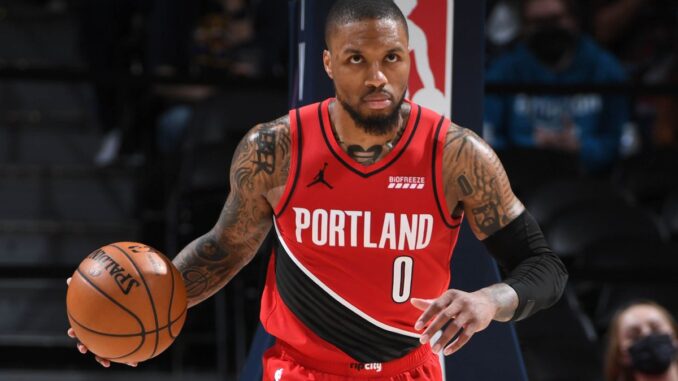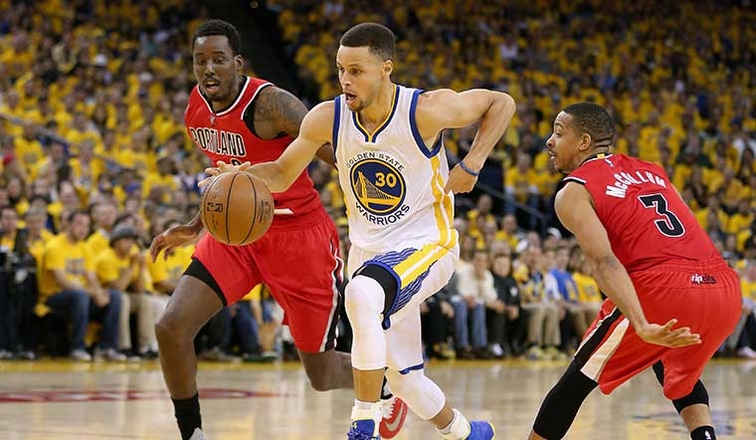
When the summer months typically approach the NBA Calendar to the executives and players either enjoying an extended stay down the refreshing Central American coastlines or sacrificing souls in a quest for the Larry O’Brien, it reminds us all that twists, turns, and patterns come imminent to significantly disrupt the current landscape of the league as well as to entertain fans during a more-idle part of the year in American sports.
In today’s game, one of those patterns stands out from the rest. An intense tug-of-war between immensely talented yet cynically disgruntled talents on the court in demand for more ambitious challenges elsewhere to their own General Managers who hold the controls over those players’ wishes, part of the power given to build their roster for the upcoming regular season, typically emerges and headlines offseasons filled with blockbuster trades, preposterous amounts of money given to free agents, and franchises revived from the grave on draft night.
Both sides exert a multitude of power and effort on the rope, tugging towards their side and their right to dictate where the future of a player’s privileged career in the league will be spent. The casual but curious basketball mind might figure the ones with the actual ability to negotiate and carry trades with other teams regarding any player on a roster stand too powerful to any verbal call for a trade by its franchise icon, that a GM had enough tools in their disposal to fight off interest either to keep the player put or opt to obtain the most value possible out of that departing star despite failing to send him to the destination that to his camp.
However, players always look for unique ways to get to where they want to be despite not possessing the resources league executives do possess. Future Hall-of-Famer Anthony Davis made it clear to New Orleans Pelicans GM Trajan Langdon that he wanted to take his MVP-caliber skills away from the team. New Orleans drafted and gave Davis the keys of the franchise for seven seasons following the departure of Chris Paul to now “Lob-City” ready LA Clippers the season before selecting the Duke product first overall in the 2012 draft, and the big-man had his sights set on the other basketball team in the City of Angels, none other than the glamorous and shiny Los Angeles Lakers.
The storm created more chaos than expected, and madness followed. Davis would not extend his contract with New Orleans, which would allow him to join another team with the salary cap space to sign him while not providing any compensation to the Pelicans for a superstar caliber player. This provided leverage on the player’s side to get themselves where they prefer to be while applying pressure on a front office to get a deal over the line so they could obtain some sort of talent rather than nothing when the player likely departs in free agency. Davis got his trade to the Purple and Gold in the end, allowing other players in the future similar situations to develop methods ranging from a lack of presence in mandatory team activities such as preseason training camp, practices, and even games, all to get that trade to their preferred new home despite the strength of that team’s offer or other offers that may present itself.
Although front offices usually stay calm and collected publicly when these antics are tested, it can put severe danger to their team-building plans, and this trend has continued for several years. Just recently has the matter been brought to light in league circles, as it finally made its way to the Pacific Northwest.
The presence of player empowerment was as noticeable as ever this summer; All-Star G Bradley Beal used the no-trade clause he stole (along with the other $250 million) from the Washington Wizards in the previous offseason to his advantage big-time. The veteran forced Washington to reject more lucrative offers from other suitors to get to the Phoenix Suns for a truck-load mainly of unwanted first-round pick swaps and second-round picks, even calling his best friend Jordan Goodwin to come along with him to the Grand Canyon State despite being a 24-year old who could fit in the rebuilding environment that surrounds Washington today. James Harden opted INTO his player option with Philadelphia, only to express another trade request that had fans rather groan, while later deciding to hide out on the other side of the world to call his GM a “liar” with a promise to never play for his organization in the future. To a crowd in Shanghai where half likely didn’t know what was coming out of the Beard’s mouth. Sound wild to you?
In more familiar places, we see that tug-of-war between the General Manager and Player in our confines at Rip City. When Franchise legend Damian Lillard announced his intention to leave to the Miami Heat public in early July, Inexperienced President of Basketball Operations and General Manager Joe Cronin responded with clear hesitancy in accommodating Lillard’s wishes. The Trail Blazers have made it clear they do not view Pat Riley and Miami’s collection of assets as adequate to acquire for a player of Lillard’s caliber and continue to hold on to the irate 7x All-Star in hopes for a more substantial offer in the future.
Lillard’s camp has refused to understand Cronin’s stance, and the fight to acquire leverage over their front office on a player’s future appears yet again. Aaron Goodwin, Lillard’s agent, has attempted to shoo away non-Miami suitors with a warning that Lillard would be an “unhappy” player to any other franchise trading significant value away for him. Teams have historically feared to trade for a superstar who’s threatened to turn unsettled enough to request an additional trade away in the near future, meaning the numerous blue-chip prospects and draft picks were given away to acquire a rental that failed to help bring any significant success. The James Harden trade to Brooklyn in 2021 is a prime example, with the Nets now devoid of first-round picks for several years while only achieving a second-round appearance in the Playoffs at the core’s best.
Recently, team owners and executives have taken the opportunity of ratifying the league’s new Collective Bargaining Agreement (CBA) with the NBA’s Player Association to put in new guidelines discouraging and punishing players’ conduct relating to trade demands and action taken against teams, strictly those made publicly. Fines for a public request to be traded have been significantly increased from $50,000 to $150,000, with James Harden already having to experience such harsher discipline early on for his comments towards Daryl Morey in China. The NBA prints money, and these hoopers (and these star hoopers ESPECIALLY) make tens to hundreds of millions of dollars, leaving Harden to maybe let out a loud chuckle at Adam Silver when the notification came in and he kissed goodbye to his chump change out of $35 million annually. In addition, the CBA includes a brand-new rule that a front office or the league has the right to suspend players requesting trades publicly from team activities, games, and the league altogether. These provisions can only be implemented when it’s time to ratify a new CBA, which only occurs once every several years; this is undoubtedly the most action we’ve seen owners pull off against stars regarding player empowerment in the modern era of trade movement, and very much something to observe with both eyes during the future indeed.
Will all this fix everything? Or anything? Who knows, time will tell. For now, they’ll keep tuggin’ away at the rope, tuggin’ towards their side and their power.



